|
|
|
|
Archeologists know that people first started to colonise the islands of the Caribbean about 7,000 years ago but the routes they took has remained a mystery. A group of researchers reviewed decades of artefacts and, using radiocarbon dating, created a clearer picture of how humanity first spread from island to island.
Also in this week’s science and research news, climate scientists explain what the Earth was like 3 million years ago when carbon dioxide levels are the same as now. And warn that if global greenhouse gas emissions continue to rise, they could return the Earth to Pliocene conditions, with higher sea levels, shifted weather patterns and altered conditions in both the natural world and human societies.
And in other news:
|
Martin La Monica
Deputy Editor
|

|
|
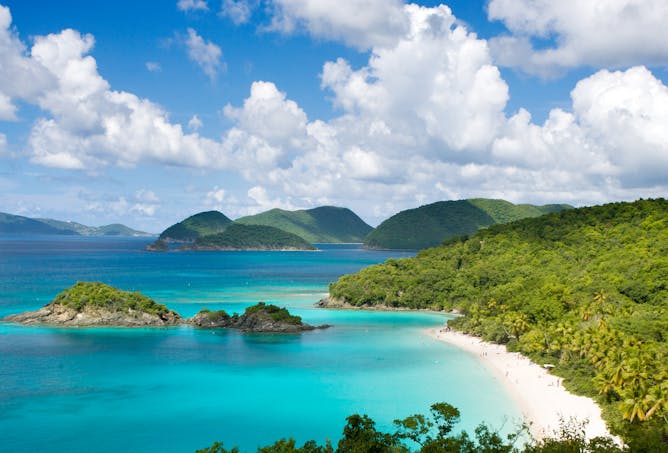
What route did the first settlers to colonize the islands of the Caribbean take?
M.M. Swee/Moment via Getty Images
Matthew F. Napolitano, University of Oregon; Jessica Stone, University of Oregon; Robert DiNapoli, Binghamton University, State University of New York; Scott Fitzpatrick, University of Oregon
Did people settle these islands by traveling north from South America, or in the other direction? Reanalyzing data from artifacts discovered decades ago provides a definitive answer.
|
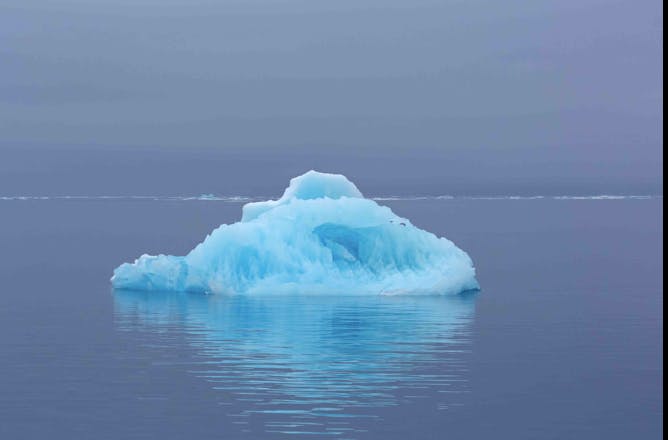
Ice floe drifting in Svalbard, Norway.
Sven-Erik Arndt/Arterra/Universal Images Group via Getty Images
Julie Brigham-Grette, University of Massachusetts Amherst; Steve Petsch, University of Massachusetts Amherst
Extreme shrinkage of summer sea ice is just the latest evidence of rapid Arctic warming – and what happens in the Arctic doesn't stay there.
|
Science + Technology
|
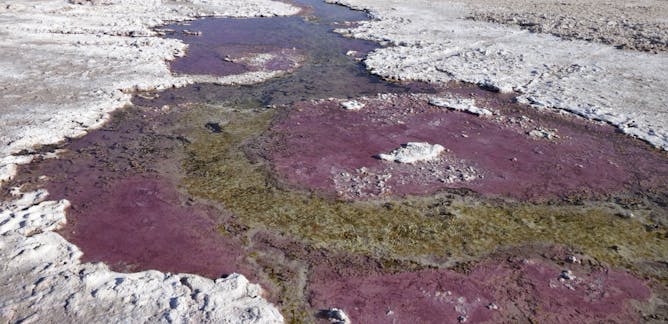
Pieter Visscher, University of Connecticut; Brendan Paul Burns, UNSW; Kimberley L. Gallagher, Quinnipiac University
How ancient microbes survived in a world without oxygen has been a mystery. Scientists discovered a living microbial mat that uses arsenic instead of oxygen for photosynthesis and respiration.
| |

David Rothery, The Open University
New findings boost chances of finding life on Mars, but there are better candidates in the solar system.
|
|
|
Arts, Culture + Society
|

Enrico Bonadio, City, University of London
How Banksy's glib response to a trademark challenge backfired and lost him a two-year legal battle.
| |
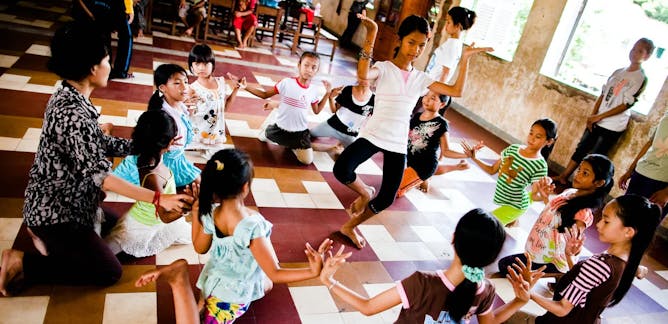
Alexandre P. Bédard, Université du Québec à Montréal (UQAM); Caroline Coulombe, Université du Québec à Montréal (UQAM); François Audet, Université du Québec à Montréal (UQAM)
Cambodia found the strength to rebuild itself
through art after the 1979 genocide. While the context is different, this example suggests the importance of art in navigating COVID-19.
|
|
|
Politics
|

Alison Gash, University of Oregon; Alexander Cohen, Clarkson University; Rashawn Ray, University of Maryland
They shouted, they interrupted, they insulted – and not entirely in equal measure. But Biden and Trump also touched on the issues occasionally. Our panel of experts analyzed three key exchanges.
| |

Steve Peers, University of Essex
In the row between the UK and EU over how to handle state subsidies after Brexit, both sides insist their proposals are consistent with the political declaration.
|
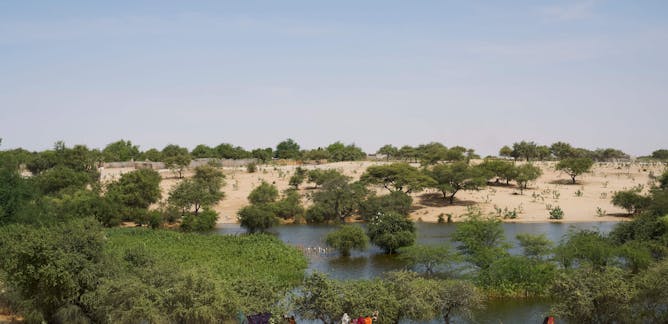
Saheed Babajide Owonikoko, Modibbo Adama University of Technology
The shrinking of Lake Chad contributes to instability in the countries which sit around its expanse.
| |

Boniface Ushie, African Population and Health Research Center; Sara E Casey, Columbia University Medical Center; Terry McGovern, Columbia University Medical Center
The Global Gag Rule transcends abortion and exacerbates weaknesses and vulnerabilities of the Kenyan health system.
|
|
|
En Français
|
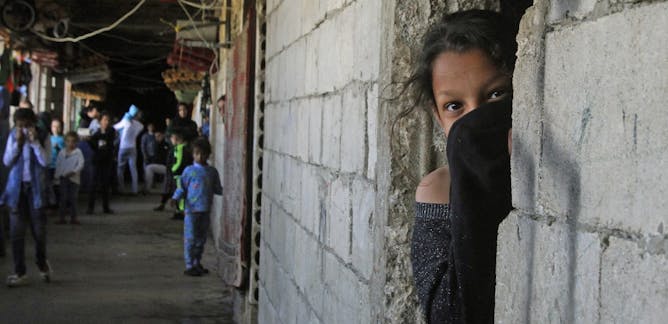
Lyla André, Université catholique de Louvain
Le sort du million de réfugiés syriens au Liban reste incertain alors que le pays connaît une crise économique, politique et sociale sans précédent. Quelle réponse de la communauté internationale ?
| |

Driss Aït Youssef, Pôle Léonard de Vinci – UGEI
Le Conseil constitutionnel a censuré une loi votée le 17 juillet portant sur la surveillance judiciaire, invoquant un manque d’équilibre entre les droits et libertés des individus et la sécurité.
|
|
|
| |
| |
| |
| |
| |
| |
|
|
|
|
|
|
|